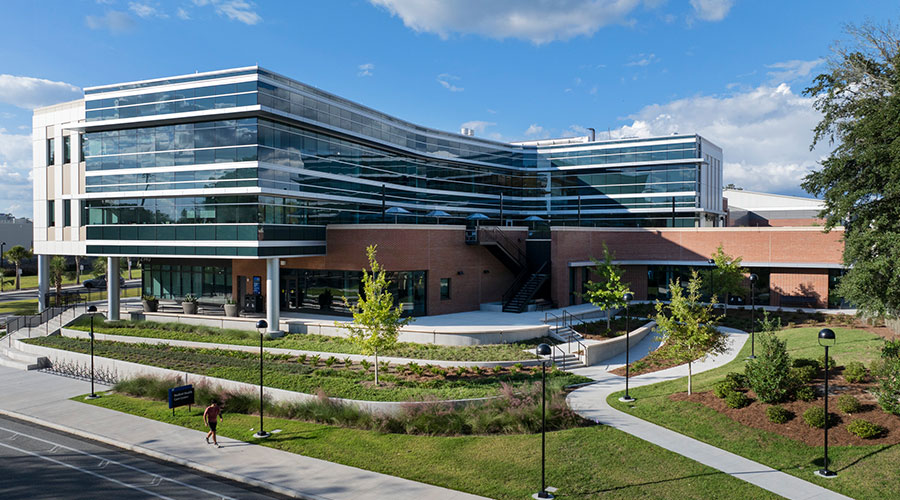Robert Francis Focuses on Sustainability Amid Drexel University's Massive Growth
Robert Francis, Drexel University's vice president of university facilities, began his professional life in a college English department teaching freshmen about dangling participles and prepositional phrases. If that sounds unconventional for a facility manager, just wait — Francis wouldn't have it any other way.
About four decades, a few graduate degrees, stints in university administration, and several facilities positions later, Francis, an engineer by training, is now overseeing hundreds of millions of dollars in new construction, as well as a staff of more than 400, at Drexel. His is not the usual route a person might take to an executive position in facilities, but that suits Francis well.
As his boss, James Tucker, Drexel's senior vice president of student life and administrative services, says, "Bob tries to do things in new ways because he's tried so many other ways in the past. He likes to put a new twist on things."
This willingness to be creative and take the road less traveled manifests itself in several ways in Francis's facilities operation, but nowhere more so than in his approach to sustainability initiatives. In 2009, Drexel became the first campus in the country to adopt the Green Building Initiative's Green Globes as its rating system standard for new buildings. Additionally, since January 2011, the
campus has purchased 100 percent of its electrical energy in wind renewable energy certificates (RECs), which resulted in the university meeting its American College and University Presidents' Climate Commitment Goal of being 80 percent carbon neutral 39 years ahead of the 2050 target.
Francis is always up for trying something new — whether volunteering Drexel facilities to be beta test sites for initiatives the university's faculty is working on or offering a campus building as a guinea pig for a new method of energy efficiency funding. If there's potential benefit for the university, it's worth a try, says Francis.
Drexel First To Join Energy Efficiency Investment Program
Last October, Drexel University became the first participant in an innovative financing opportunity that will help the campus, and other Pennsylvania universities, fund energy efficiency upgrades.
The Pennsylvania Campus Energy Efficiency Fund, a private-public partnership developed by the Pennsylvania Treasury Department (which will invest $10 million initially to the fund) and Philadelphia investment firm Blue Hill Partners, will provide as much as $45 million for as many as 12 Pennsylvania colleges to do energy efficiency projects with verifiable energy savings potential.
Drexel has identified six projects on campus that, when completed, are expected to reduce the campus's energy use by 7 percent and save between $500,000 and $600,000 annually.
The first two of those projects — an exhaust control system for an engineering building and a complete HVAC retrofit for a classroom building — go to the Drexel board of directors for final approval in September, according to Robert Francis, vice president of university facilities.
"We are partnering with the commonwealth to pioneer a new form of green project service delivery whereby Treasury assets are deployed," he says. "We do these things to meet a commitment to serve the public. It's the least we can do for a commonwealth that has been very good to Drexel."
— Greg Zimmerman
|
Related Topics:














